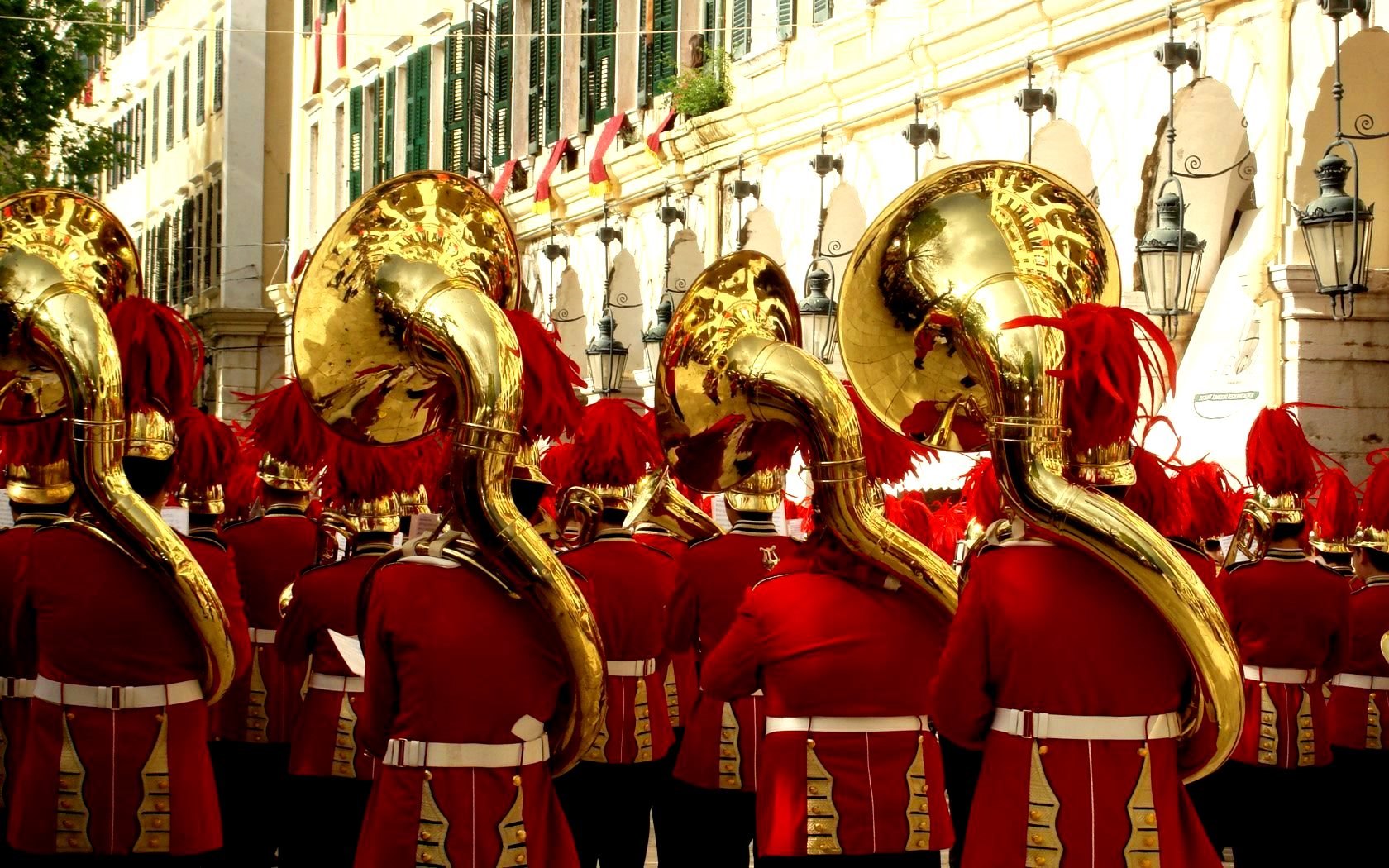
You are using the Free Edition of CorfuAPP. For extensive information on Corfu, GO PRIME with our comprehensive Greek Travel App featuring the full editions of Corfu and 25 more Greek islands & Athens.
more…

While much of present-day Greece was under Ottoman rule, the Ionian Islands enjoyed a Golden Age in music and opera. Corfu was the capital city of a Venetian protectorate and it benefited from a unique musical and theatrical heritage. Then in the 19th century, as a British Protectorate, Corfu developed a musical heritage of its own and which constitutes the nucleus of modern Greek musical history. Until the early 18th century, musical life took place in city and village squares, with performances of straight or musical comedies – known as Momaries or Bobaries. From 1720, Corfu became the possessor of the first theatre in post-1452 Greece. It was the Teatro San Giacomo (now the City Hall) named after the nearby Roman Catholic cathedral (completed in 1691).
The island was also the center of the Ionian School of music, the musical production of a group of Heptanesian composers, whose heyday was from the early 19th century till approximately the 1950s. It was the first school of classical music in Greece and it was a heavy influence for the later Greek music scene, after the independence.
Corfu’s Philharmonic Societies provide free instruction in music, and continue to attract young recruits. There are nineteen such marching wind bands throughout the island.
The bands give regular summer weekend promenade concerts at the Spianada Green “pálko”, and have a prominent part in the yearly Holy Week ceremonies.